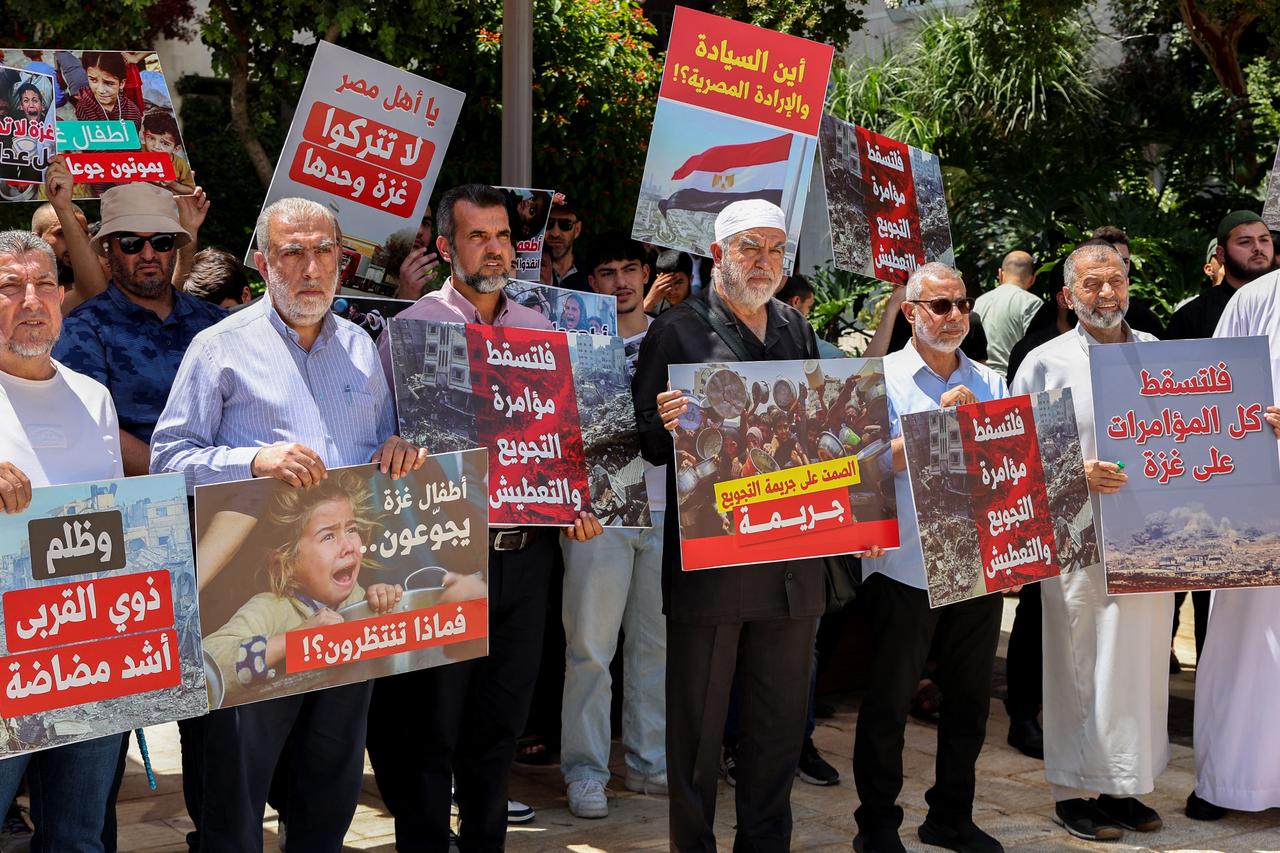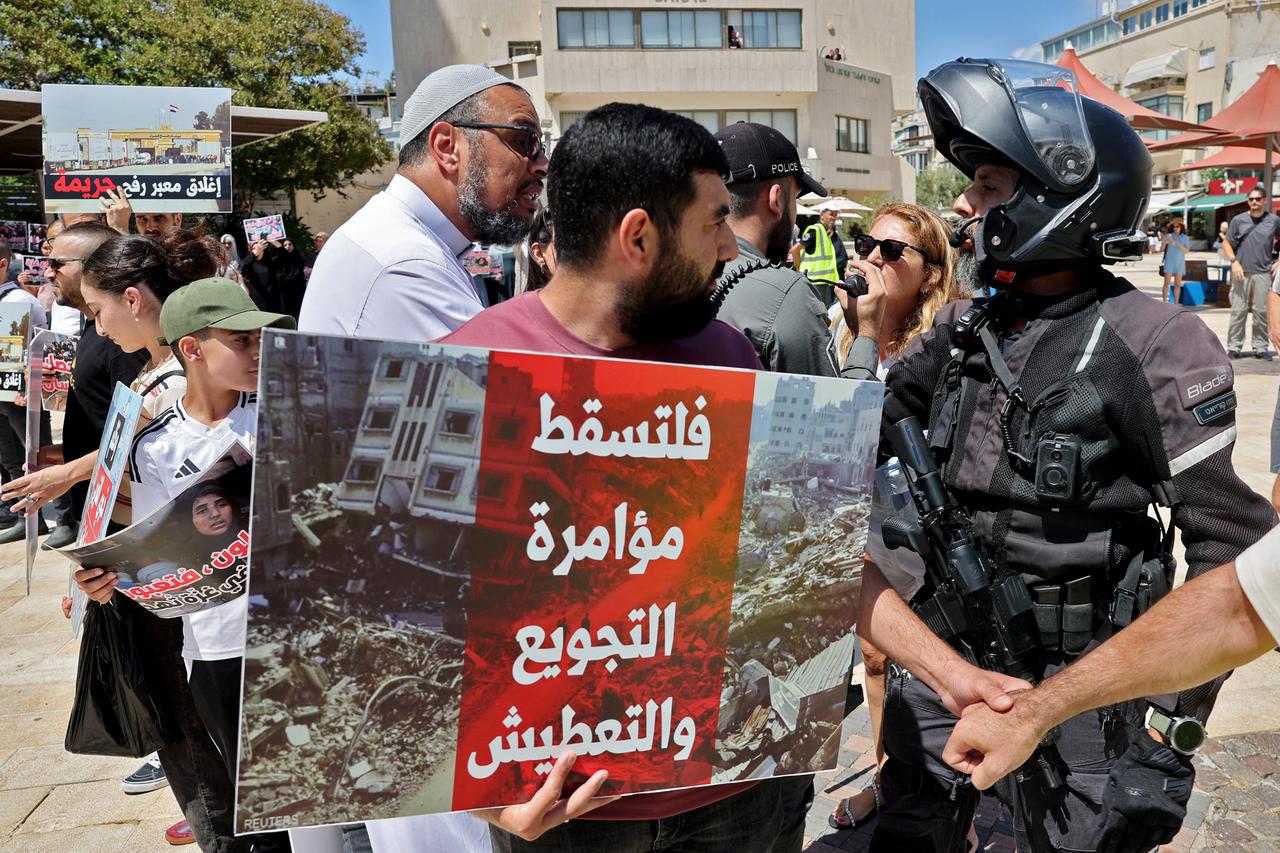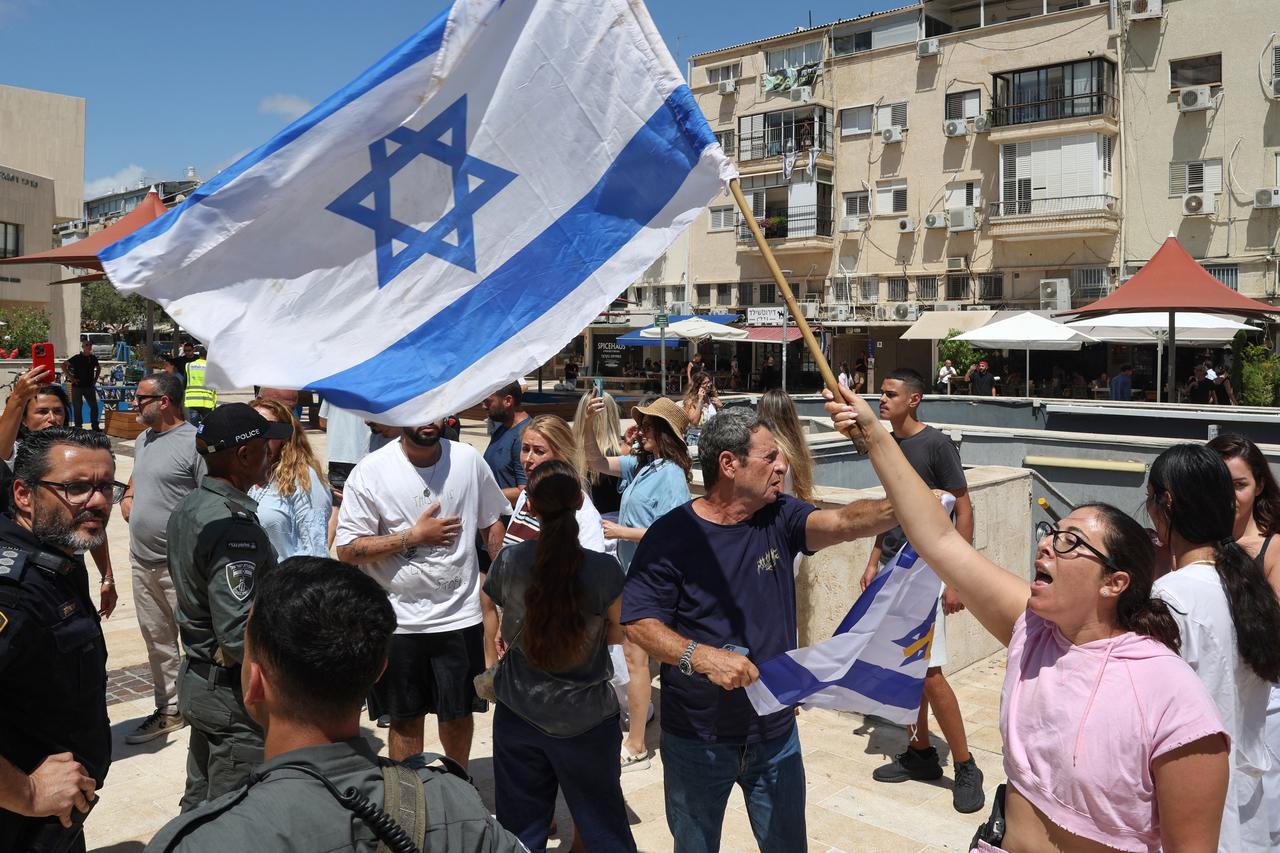
The Islamic Movement within the Green Line, affiliated with the Muslim Brotherhood, staged a protest Thursday outside the Egyptian embassy in Tel Aviv, denouncing the closure of the Rafah crossing and the worsening humanitarian crisis in Gaza.
This move sparked a wave of sharp criticism across Arab and international media, highlighting the controversy surrounding the demonstration’s true intent and impact.
Critics from Arab and international social media users argued that, rather than calling on Israel to end its assault on Gaza and lift the blockade, the organizers chose to hold a protest sanctioned by the very occupation responsible for the ongoing starvation.
The Israeli police released an image of the permit authorizing a protest in front of the Egyptian embassy in Tel Aviv, confirming that the movement had submitted a direct request to the Israeli government to organize the protest, which was officially approved.
The demonstrators raised slogans accusing Cairo of complicity in the "starvation of Gaza" due to the continued closure of the Rafah border crossing to aid.
For its part, the Egyptian Ministry of Foreign Affairs denied the accusations, asserting in an official statement that organizing protests in front of Egyptian embassies “undermines Egypt’s historic role in supporting the Palestinian cause and its sacrifices since the Nakba.” The ministry described the move as “serving the interests of the Israeli occupation and weakening Palestinian resilience.”

Despite widespread criticism from Egyptian and Palestinian voices, the Israeli newspaper Haaretz expressed praise for a protest that directly targeted Egypt, demanding the reopening of the Rafah crossing and an end to what the demonstrators described as the ongoing siege of the Gaza Strip.
The Haaretz report implicitly endorsed the protest organizers, framing Egypt’s role in Gaza in a negative light. It overlooked Egypt’s sustained efforts to support the Palestinian cause, its facilitation of humanitarian aid into Gaza, and its ongoing mediation efforts to achieve cease-fires between Israel and Palestinian factions.

Egyptian media figures condemned the protests held outside several of the country's embassies abroad, describing them as both “ridiculous and regrettable.” They argued that such demonstrations are futile and called on protesters to direct their anger toward their own governments rather than Egypt.
The demonstration also faced strong criticism from prominent leaders within the occupied Palestinian territories, who denounced it as an attempt to undermine Egypt’s regional role in defending Palestinian rights. They accused the protest of diverting attention from the root causes of the humanitarian crisis in Gaza by shifting the blame onto Egypt instead of holding Israel solely accountable.
Gazan journalist Bisan Ouda wrote on Instagram: “The priority should be mobilizing the streets in the West Bank and pressuring Israel to stop the genocide and withdraw from Oslo, not protesting in front of Egyptian or Jordanian embassies.” She added, “Israel wants us to believe that Egypt is the killer, while the real killer stands before us."